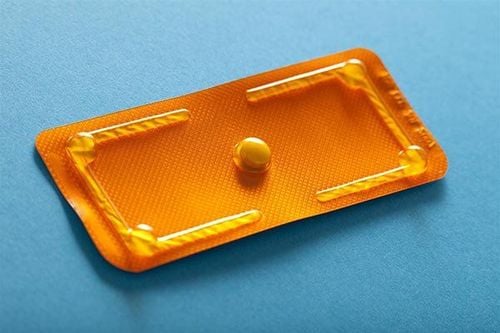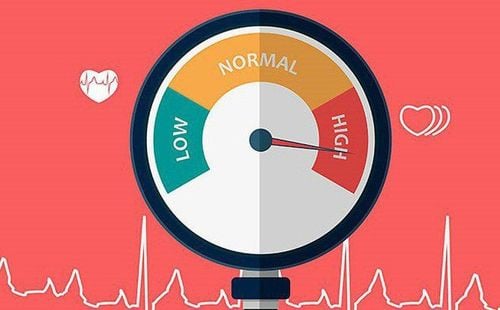Birth control pills are a widely used option for contraception. They can be classified into two main types: combined oral contraceptives and emergency contraceptive pills. Many people wonder whether they should take birth control pills before or after intercourse. This article will address that question.
1. What are birth control pills?
Birth control pills, also known as "the pill," are daily medications that typically contain hormones such as estrogen and progesterone. These hormones are designed to prevent pregnancy.
Most birth control pills are "combined pills," which include both estrogen and progesterone to stop ovulation (the release of an egg during the monthly cycle). Without ovulation, pregnancy cannot occur because there is no egg for fertilization.
Trắc nghiệm: Bạn có hiểu đúng về dấu hiệu mang thai sớm?
Các dấu hiệu mang thai sớm không phải chỉ mỗi trễ kinh mà còn có rất nhiều dấu hiệu khác như xuất huyết âm đạo, ngực căng tức,… Điểm xem bạn biết được bao nhiêu dấu hiệu mang thai sớm thông qua bài trắc nghiệm này nhé!
Birth control pills also work by thickening cervical mucus, making it more difficult for sperm to enter the uterus and encounter an egg. Additionally, the hormones in the pill can alter the uterine lining (uterus endometrium), making it harder for a fertilized egg to implant.
Some types of birth control pills can also be used as emergency contraception after unsafe sexual intercourse, a method that remains unfamiliar to many women.
2. Should You Take Birth Control Pills Before or After Intercourse?
When used for emergency contraception, birth control pills are about 75% effective, whereas daily contraceptive pills offer approximately 97% efficacy. Nausea is a common side effect.
Many people mistakenly believe that emergency contraceptive pills should only be taken after intercourse. However, taking the pills as soon as possible—even before intercourse—can enhance their effectiveness.
Combined oral contraceptives must be taken in higher doses (several pills) within 72 hours of unprotected intercourse and repeated 12 hours later. For progestin-only pills (without estrogen), the first dose should be taken within 48 hours of intercourse, followed by a second dose 12 hours later.
Emergency contraception is suitable for women who experience sexual assault, forget to use regular contraception, or have unprotected intercourse. It may also be used when contraceptive methods fail, such as a condom breaking or slipping. Consulted by Dr. Roberto Rivera, FHI's corporate director of international health affairs

3. Safety and Effectiveness of Birth Control Pills
In June, an advisory panel to the U.S. Food and Drug Administration (FDA) concluded that birth control pills are safe for emergency contraception. The panel identified effective doses for six known brands, including:
- Wyeth's Ovral: Two pills per dose.
- Wyeth's Nordette, Lo/Ovral, or Triphasil: Four pills (yellow tablets only).
- Berlex Laboratories' Levlen or Tri-Levlen: Four pills (yellow tablets only).
Emergency contraception can also be achieved using a copper intrauterine device (IUD) within five days of unprotected intercourse or through antiprogestins like mifepristone (RU-486) within 72 hours.
A recent study raised concerns about the use of synthetic progesterone (progestins) in contraceptives, linking it to an increased risk of simian immunodeficiency virus (SIV) in monkeys—a disease similar to HIV. However, experts, including Dr. Willard Cates Jr. from FHI, maintain that progestin-containing contraceptives are safe and effective but do not protect against sexually transmitted infections (STIs), including HIV. Couples at risk of STIs should use latex condoms for protection.
Over 70 million women worldwide use oral contraceptives, but incorrect use is common, reducing effectiveness. Side effects, such as changes in menstrual cycles, also lead some women to stop using them. Improved counseling on side effects and consistent use can enhance effectiveness.
Since their introduction over 30 years ago, hundreds of studies have examined the risks and benefits of birth control pills, including their link to diseases. According to recent World Health Organization (WHO) criteria, most women can use the pill safely. However, it is not recommended for women with high cardiovascular risk, those over 35 who smoke heavily (more than 20 cigarettes per day), or those with certain medical conditions that may worsen with the pill.
For more useful information, visit Vinmec.com regularly.
To arrange an appointment, please call HOTLINE or make your reservation directly HERE. You may also download the MyVinmec app to schedule appointments faster and manage your reservations more conveniently.
Reference articles: hongngochospital.vn, medlatec.vn, fhi360.org












